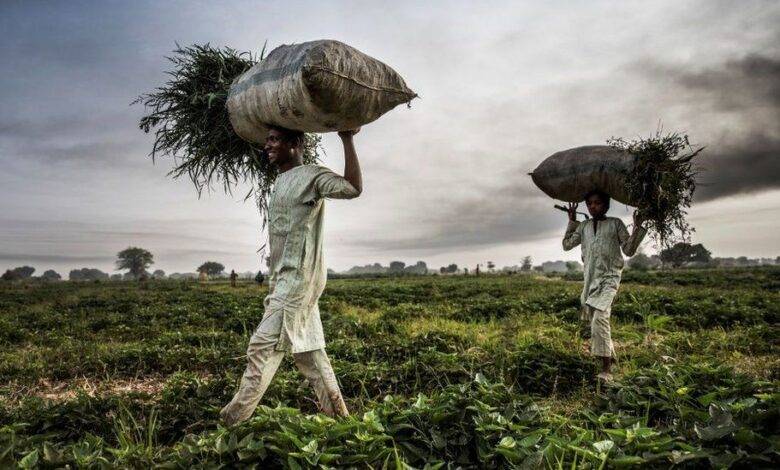
Nigeria’s President, Bola Tinubu, has declared a state of emergency to tackle rising food prices and shortages.
Some of the initiatives include using money saved by the recent removal of a fuel subsidy to provide fertiliser and grain to farmers.
Protection is also to be increased for farmers, many of whom have abandoned their land after becoming the target of gangs that kidnap for ransom.
Poorer households are to be helped too with $10 (£8) a month for six months.
“I assure all Nigerians that no-one will be left behind in these strategic interventions,” said Mr Tinubu, who took office in May.
A UN report in January projected that 25 million Nigerians were at high risk of food insecurity this year – meaning they would not be able to afford enough nutritious food every day.
Concerns about food insecurity have been longstanding in Nigeria – Africa’s most-populous country, which has also been battling widespread insecurity for several years.
More than 350 farmers were kidnapped or killed in the 12 months up to June 2022 alone, according to a Nigerian security tracking website.
Many of these attacks have taken place in the north of the country.
But new security measures would mean farmers could return to the farmlands “without fear of attacks”, government adviser, Dele Alake, said.
No further details were given about how the government intends to tackle the notorious organised criminal gangs, whose members are referred to as bandits.
All matters relating to essential food and water will now be the responsibility of the National Security Council, which is made up of the country’s security chiefs and headed by the president.
Mr Tinubu’s first major policy move after taking office was to remove the fuel subsidy, which had been in place for decades and kept the price of petroleum products low.
Its removal has led to increases of up to 200% in some parts of the country, but the new president has defended the move, saying it is essential to use that money more effectively.
The rise in fuel has had a knock-on effect on the economy, with many Nigerians depending on generators for their electricity supply.
Just a few days ago the Association of Master Bakers and Caterers of Nigeria warned that bread prices would spike by 15%. —BBC





